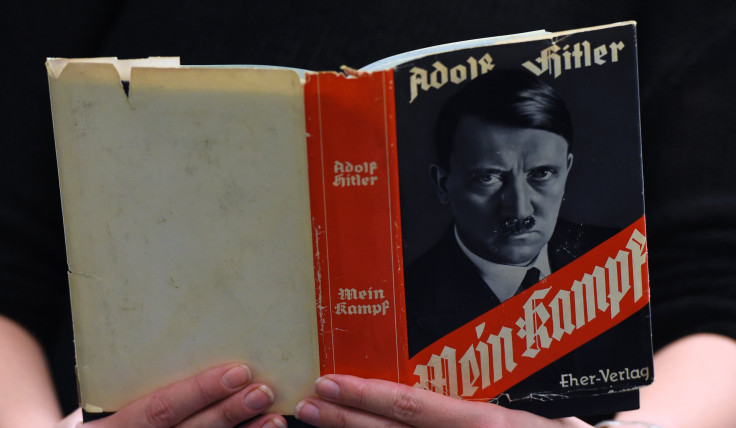‘Mein Kampf’ Should Be Taught In Schools To Prevent Extremism, German Teachers Say

Schoolteachers in Germany want to add a 90-year-old text to the high school curriculum: “Mein Kampf,” the anti-Semitic autobiographical manifesto written in 1925 by Nazi leader Adolf Hitler. German teachers' association Deutschen Lehrerverbandes says that an annotated version of the text could help "inoculate" German high school students against extremism, Agence France-Presse reports.
The rights to the book, which has been out of print since the end of World War II, have been held by the German state of Bavaria for 70 years. The Bavarian government has refused to allow reprints, but the copyright expires at the end of 2015. Munich’s Institute of Contemporary History will publish an annotated edition called “Hitler, Mein Kampf: A Critical Edition” in January. The book will include historical commentary to the hate-filled text in some 3,500 annotations. But German authorities will still prosecute publishers who reprint unedited versions of the text on grounds of “inciting racial hatred.”
The teachers’ association wants to add certain passages of the book to be taught to students over 16. Studying it in a classroom environment is a must, said the group’s head, Josef Kraus, because young people are attracted to forbidden texts. Kraus added that in a school environment, the propaganda document could be taught “by savvy history and politics teachers” in an effort to “inoculate adolescents against political extremism.”
The German political party Social Democrats applauded the move.
“‘Mein Kampf’ is a terrible and monstrous book,” Ernst Dieter Rossmann, the educational policy spokesperson for the party, said. “To historically unmask this anti-Semitic, dehumanizing polemical pamphlet and to explain the propaganda mechanism through appropriately qualified teachers is a task of modern education."
But not everyone thought it was a good idea. One German Jewish community leader, Charlotte Knobloch, said that it would be irresponsible to present students with a “profoundly anti-Jewish diatribe.”
While the text is not commercially available in Germany, it has been translated into many languages and published around the world, including Israel.
© Copyright IBTimes 2025. All rights reserved.





















